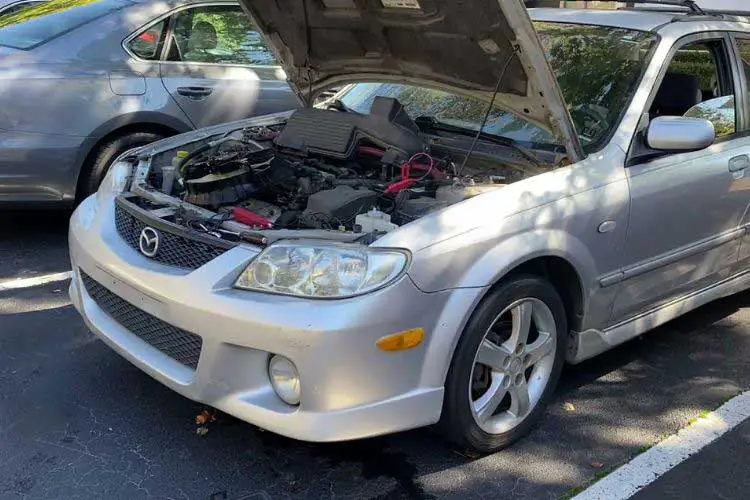Car overheating is a frustrating and potentially dangerous problem. Especially if it happens in stop-go-stop traffic. So, as an automobile owner, knowing why this happens is important.
So, why does a car overheats in stop-and-go traffic but not on the highway? It is typically brought on by a general cooling system issue associated with the radiator. The cooling system controls the engine’s temperature, and when it malfunctions, the engine may get overheated.
Since it could occur for a specific reason, you must understand all the complexities of this category of issues. In this post, we will go deeper into the various reasons for this problem and offer remedies to assist you in getting your automobile back onto the road.
Car Overheats in Stop-and-Go traffic: Causes, Symptoms, and Fixes
As it occurs due to a couple of reasons, knowing the cause will keep you in a good understanding. Likewise, you can fix the issue within a short time, or you may at least be stress-free.
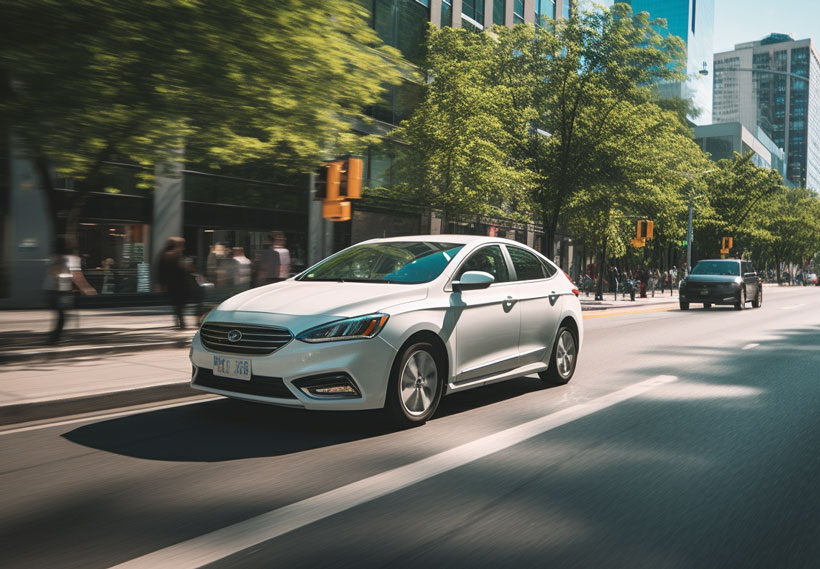
How the Cooling System Works?
Your car’s cooling system is an important part that controls the engine’s temperature. The radiator, water pump, thermostat, and hoses are some of the components. Thus, the radiator is responsible for dissipating the heat from the coolant, which is circulated through the engine by the water pump.
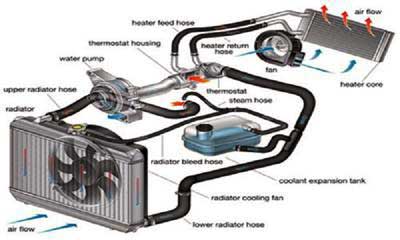
The thermostat controls the flow of coolant and the hoses transport the coolant between the different components. Accordingly, the engine works harder and creates more heat in stop-and-go traffic. Therefore, a faulty thermostat may cause overheating.
So, to disperse this heat and maintain the engine at the right temperature, the cooling system must exert more effort. The engine may overheat if the cooling system is malfunctioning.
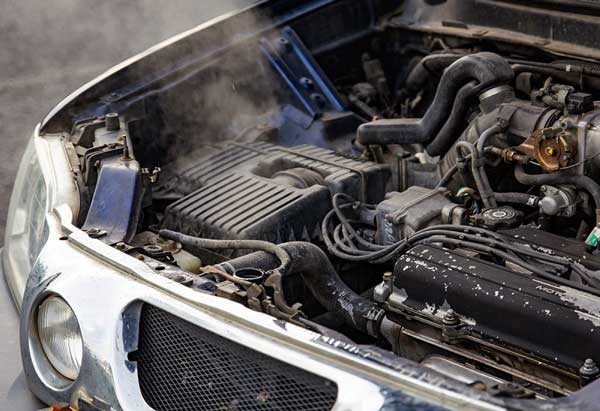
Knowing the causes
Several common causes of cooling system malfunctions can lead to car overheating in stop-and-go traffic but not on the highway. These include:
- Leaks in the coolant system: The coolant levels may drop due to a leak in the cooling system. This will make it more challenging for the cooling system to remove heat from the engine.
- A failing water pump: The water pump can also be to blame. It is in charge of moving coolant through the radiator and engine. Overheating might result from a damaged water pump that prevents coolant from getting to the engine.
- A clogged radiator: A clogged radiator might prevent effective heat dissipation and result in the engine overheating. It is crucial to check whether there are radiator problems since they might cause the car to heat up even if there is no traffic.
- A failing thermostat: The thermostat controls how much coolant is sent through the engine. So if it gets restricted for any reason, it may cause the car to overheat.
Sometimes, overheating can result from coolant flowing too slowly or not at all due to a malfunctioning thermostat.
- Restrictions in the coolant hoses: Lastly, restrictions in the coolant hoses can impede the flow of coolant and cause the engine to overheat.
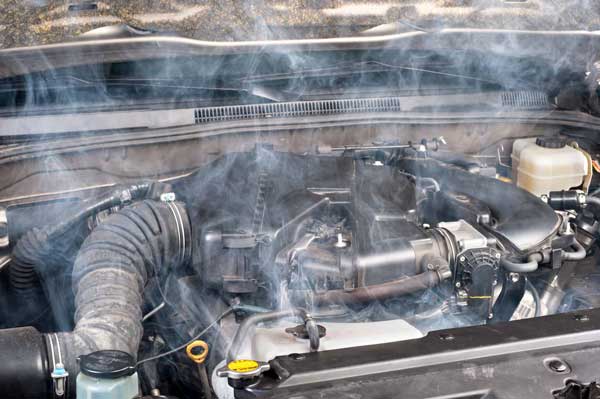
What are the Symptoms?
If your automobile is overheating in stop-and-go traffic but not on the interstate, pay attention to the symptoms that might suggest a cooling system problem. Among the most typical signs are:
- Warning light on the dashboard
On the dashboard of many contemporary vehicles, there is a temperature warning light that turns on when the engine starts to overheat. This is a blatant sign that there is a problem with the cooling system. Therefore, you should stop right away and turn off the engine.
- Steam coming from under the hood
Overheating is visible when steam is flowing from underneath the hood. The steam is a symptom that the engine is running too hot since it results from the boiling coolant.
- An overheating engine
It’s obvious that the engine is overheating if you see the temperature indicator on your dashboard increasing. A faulty cooling system or insufficient coolant may be to blame for this.
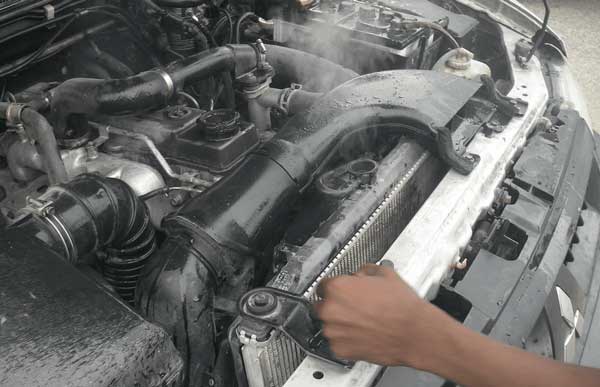
- Low coolant levels
An insufficient amount of coolant can lead to an overheated engine. Hence, it’s crucial to monitor the coolant levels and add more frequently as required.
- Overheating while idling or in traffic
If your automobile overheats while idle or in traffic, the cooling system probably isn’t functioning correctly. A damaged section or a shortage of coolant may be to fault for this.
It’s important to note that these symptoms can also be caused by other issues. However, if you notice any of these symptoms, you must get your car checked out by a professional as soon as possible to diagnose and repair the problem. Ignoring these symptoms can lead to costly repairs and damage to the engine.
Diagnosis and Repair
If you see the symptoms, you should consult with an expert. That is because a qualified and experienced mechanic can perform a thorough visual inspection of the entire cooling system. That includes all hoses, belts, and connections.

They will also conduct a pressure test to check for any leaks in the system, which may not be visible during the visual inspection. Based on the diagnosis, the mechanic will recommend the appropriate repairs.
Common fixes that can be necessary include thermostat and radiator replacements, water pump replacements, cooling system cleansing, and leaks in the water pump. Depending on the precise issue, your car’s make and model, and its age, these fixes may differ.
However, regular maintenance and timely repairs are essential to extend the life of your cooling system and prevent costly repairs in the future. A well-maintained cooling system will ensure that your car runs efficiently, and it will save you from the inconvenience and expense of breakdowns, and costly repairs.
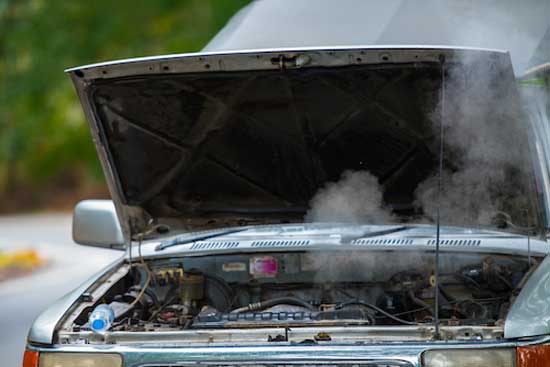
FAQs
If you still have some questions regarding this matter, have your eyes on this section. We will answer some of the frequently asked questions here.
If this occurs, it is crucial to stop quickly, turn off the engine, and take appropriate action. The next step is to open the hood and allow the engine to cool before checking the coolant level and restarting it.
Yes, a faulty fan clutch can cause a car to overheat in stop-and-go traffic since it controls the radiator fan. It might cause the fan to spin too slowly, causing the engine to overheat.
You should check the temperature gauge for symptoms of overheating and listen for any strange noises from the fan. Also, have a professional technician inspect if required.
Conclusion
Finally, car overheating in stop-and-go traffic might be caused by a faulty cooling system. When your automobile overheats, you should take quick action, such as pulling over, shutting off the engine, and getting it inspected by a professional technician.
Besides, keep an eye on the temperature gauge and warning indicators, as well as perform routine maintenance and verify the radiator fan’s functioning condition. Overall, offer your automobile a nice time by providing sufficient treatment and engine monitoring. It will eventually return a valuable moving experience.
